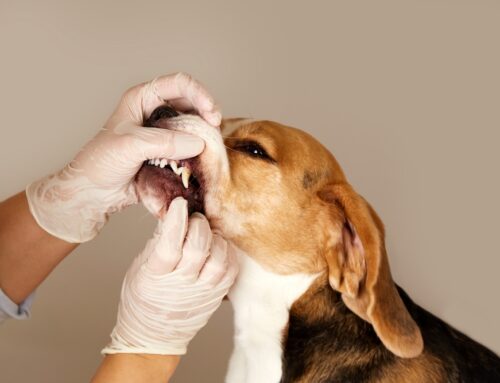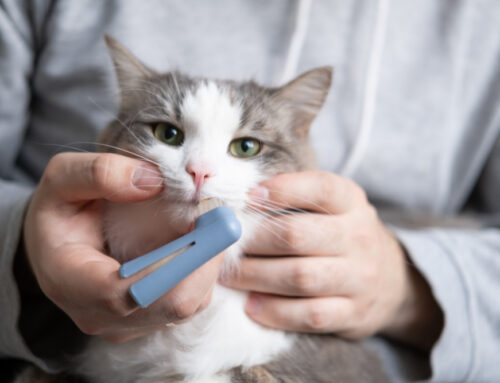Unlocking the Benefits of Dental Chews and Toys for Your Pets
Maintaining your pet’s dental health is a critical aspect of their overall well-being. Without proper oral care, plaque and tartar build-up can lead to periodontal disease, which not only causes discomfort but can also contribute to serious systemic health issues such as heart disease and kidney infections.
At Cane Bay Veterinary Clinic, we emphasize preventive dental care, including regular professional cleanings, at-home brushing, and the use of dental chews and toys. These tools help reduce plaque buildup, freshen breath, and promote gum health. Learn more about our dental services.
How Dental Chews and Toys Support Oral Health
The Role of Chewing in Dental Hygiene
Chewing is a natural behavior for dogs and cats that provides numerous benefits:
- Reduces plaque and tartar buildup through mechanical abrasion
- Stimulates saliva production, which neutralizes harmful bacteria
- Strengthens jaw muscles and promotes gum health
- Provides mental stimulation and stress relief
Regular use of dental chews and toys can supplement brushing, especially for pets resistant to toothbrushing. However, these should never replace professional veterinary cleanings.
Studies show that 80% of dogs and 70% of cats over age three have some form of dental disease. Incorporating chews and toys into their routine can help slow disease progression.
Choosing the Right Dental Chews and Toys
Selecting the appropriate chew or toy is essential for both effectiveness and safety. Consider:
Texture and Material
- Firm but not too hard—products that are too rigid can crack teeth, while those too soft won’t effectively remove plaque.
- Rubber or rope toys are great for massaging gums and removing debris.
Size and Durability
- Choose the appropriate size for your pet’s breed and chewing style to prevent choking or swallowing large pieces.
VOHC-Approved Products
Look for dental chews and treats approved by the Veterinary Oral Health Council (VOHC), which meet standards for plaque and tartar control.
Not all products marketed as “dental chews” are safe. Read more about the potential dangers of popular dog chews.
Potential Risks of Dental Chews and Toys
While dental chews and toys are beneficial, they also come with risks if not selected or used properly.
Hazards to Watch For
- Hard materials such as antlers, bones, or synthetic chews can fracture teeth. Learn more in AAHA’s guide on safe chewing.
- Small pieces breaking off can lead to choking or intestinal blockages. Always monitor your pet while chewing.
- Excessive chewing may cause gum irritation or bleeding.
Veterinary professionals recommend testing a chew’s hardness—if you cannot dent it with your fingernail, it may be too hard for your pet’s teeth.
Dental Chews and Toys for Cats
Cats may not chew as much as dogs, but they can still benefit from dental toys designed to encourage oral activity.
Recommended Options
- Textured dental toys that massage gums and help remove plaque.
- Catnip-infused toys that encourage chewing and play.
- VOHC-approved dental treats for tartar control.
Explore DIY enrichment toys for your cat.
Integrating Dental Chews into Your Pet’s Routine
For best results, dental chews and toys should be part of a comprehensive dental care plan.
How to Introduce Dental Chews
- Start slowly, allowing your pet to get accustomed to the new chew.
- Limit chewing time to 10-15 minutes to prevent overuse and excessive wear.
- Incorporate chews after meals to help remove leftover food particles.
Combining Chews with Other Dental Care
- Daily brushing remains the gold standard for pet dental care.
- Annual professional cleanings remove tartar below the gumline where chews cannot reach.
- Routine dental check-ups catch problems before they escalate.
If you need professional advice, schedule a dental consultation.

Frequently Asked Questions About Dental Chews
How often should I give my pet a dental chew?
Daily use is recommended, but even a few times per week can significantly improve oral health.
Are dental chews enough to prevent dental disease?
No, dental chews are a supplement. Brushing and veterinary cleanings are still essential for comprehensive oral care. Read more about how to brush your pet’s teeth from CSU.
Can my pet use dental chews if they have food allergies?
Yes. Hypoallergenic dental treats are available. Speak with your vet for recommendations tailored to your pet’s needs.
Prioritize Your Pet’s Oral Health with Cane Bay Veterinary Clinic
At Cane Bay Veterinary Clinic, we believe dental health is just as important as routine vaccinations or nutrition. Our veterinary team provides comprehensive dental services, including:
- Routine exams
- Professional cleanings
- Personalized dental care plans
Schedule a dental check-up today. Book an appointment.
By incorporating dental chews and toys into your pet’s daily routine, you can promote better oral health, prevent dental disease, and improve their overall quality of life.






Leave A Comment